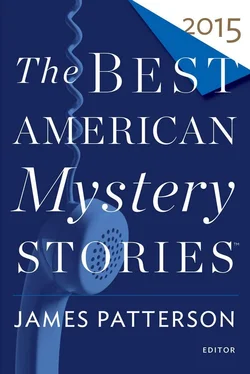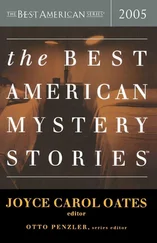• In many ways, I don’t think I will ever have better friends then I did when I was twelve. Maybe it’s because we grew up together, learned how to talk shit and fight and set things on fire. I don’t really understand it; maybe that is an age before greed and selfishness and jealousy kick in. It could be I was just better back then. I hope to have captured those experiences of adolescence accurately, of friendship and loneliness and loss.
Steven Heighton’s short fiction and poetry have appeared in Best English Short Stories, Best American Poetry, Zoetrope: All-Story, Tin House, Poetry, London Review of Books, New England Review, TLR, Agni , and five editions of Best Canadian Stories. His novel Afterlands appeared in a number of countries, was a New York Times Book Review Editors’ Choice, and was included on best-of-year lists in ten publications in the United States, Canada, and Britain. Heighton has been nominated for the W. H. Smith Award in Britain and has received four gold National Magazine Awards in Canada, where he lives. He was the 2013 Mordecai Richler Writer-in-Residence at McGill University and reviews fiction for the New York Times Book Review.
• On rereading “Shared Room on Union,” I see that the mystery at its core is the mystery of marriage, or at least of marriages that endure for any length of time. Most enduring ones sooner or later include chapters where one or both partners act in cruel, faithless, bizarre, or otherwise unlaudable ways. Unforgiveable things — or at least unforgettable things — get said and done. How does a marriage metabolize such compound calamities and emerge intact, and, often enough, annealed and deepened? I can’t seem to answer the question in a pithy way that transcends truism and cliché; maybe that’s why I’ve explored the mystery through fiction, a mode of inquiry more suggestive than conclusive, and hence truer to human relationships.
As for the predicament at the heart of “Shared Room on Union”: short story writers can’t waste time if they mean to bare the hearts and minds of their characters (and, in this case, the workings of a relationship) within a few pages. Tipping a couple suddenly into an appalling situation seems as good a way as any to get them to show their souls quickly and for all time.
Janette Turner Hospitalgrew up, was educated, and taught high school on the steamy subtropical northeastern coast of Australia. She married a fellow graduate of the University of Queensland, and she and her husband came to the United States as graduate students, not intending to stay; but life, careers, children, and grandchildren intervened. A sabbatical spent in an equatorial village in South India led to a short story, an “Atlantic First,” in March 1978. The village sojourn also led to a first novel, The Ivory Swing , which won Canada’s Seal Award and international publication in 1982. Hospital has published ten novels and four story collections in multiple languages and has won literary awards in Australia, Canada, and the U.K. Forecast: Turbulence , her most recent collection of stories, was a finalist for the Prime Minister’s Literary Award in Australia in 2013. Her most recent novel, The Claimant , was published in Australia last year. Both books are forthcoming in 2015 in the United States. Hospital is Carolina Distinguished Professor Emerita at the University of South Carolina but has also taught at MIT, Boston University, Colgate, and Columbia. She and her husband divide their time between the U.S. and Australia.
Website: www.janetteturnerhospital.com
• A few years ago, I was riveted by two brief articles which appeared two days apart in a major national newspaper. The heading of the first one was “Man Claims to Be Boy Taken in 1955: Federal Officials Await DNA Results as Lead Revives NY Kidnap Mystery.” The opening paragraph read: “More than 50 years ago, a mother left her stroller outside a Long Island bakery and returned minutes later to find her two-year-old son had vanished.” The baby sister was still in the stroller. No trace of the two-year-old had ever been found, and the case had gone cold. The parents divorced a few years later. But now a Michigan man in his fifties was convinced that he was the kidnapped child. He made contact with the woman he believed to be his sister and an emotional bond was formed. They believed they were related. The man said he had “long suspected the couple who raised him were not his biological parents.” The FBI was conducting DNA tests. Two days later, a second article indicated that the man was not the kidnapped toddler and that the couple who raised him were indeed his biological parents.
This story was so disturbing and tragic and poignant in so many ways that it haunted me and still does. I read these articles a year before my retirement, when I was still teaching an MFA fiction class. I ran off photocopies of the articles and distributed them to the class. I often used what my classes called my “story prompts” — a device that has led to a number of publications for my students. Their assignment was to select a point of view and write a fictional version of the kidnapping/identity confusion from that perspective. As always, I received finely written and nuanced stories, but all from the perspective of one or other of the parents or from the point of view of the man who believed he was the missing child.
As so many writers have noted, there are ideas that will not let you go. They become obsessions. They show up in dreams. What haunted me were the black holes in the account, the permanent absences: the abducted child; the kidnapper/killer; the absence of closure (the never knowing what happened).
By this time I had actually written three novels about psychopaths, the first of these ( Oyster ) prompted by the cult messiah David Koresh and the horrific conflagration at Waco, Texas. I was trying to understand what made so many people willing to submit all to a darkly charismatic figure. I read voraciously in the scholarly literature on psychopathology. I realized it was impossible to portray a psychopath from inside because there is no inside. It is like reporting on an earthquake or a tsunami. All the fiction writer can do is chronicle the devastation on all sides and seek to pay tribute to the survival strategies and the stricken inner lives of those left behind. I confess, to my own regret and dismay, that as a fiction writer I have become morbidly obsessed with psychopaths, both violent (cult messiahs, terrorists) and nonviolent (Bernie Madoff, a fictional clone of whom is a major character in The Claimant ). The kidnapper/killer (?) in this short story is the closest I have been able to come in an attempt to get inside the mind of such a person; though of course that is sleight of hand. The reader is never really inside the mind of the killer but is inside the mind of the man who needs not only to construct an alternative narrative of his own life but to construct his supposed kidnapper and killer.
To me, the greatest mystery is how anyone manages to survive catastrophic loss and trauma, and I am fascinated by the narrative strategies used.
Richard Langeis the author of the short story collections Dead Boys and Sweet Nothing and the novels This Wicked World and Angel Baby , which won the 2013 Hammett Prize. His stories have appeared in The Sun, The Southern Review , and The Best American Mystery Stories and as part of the Atlantic ’s Fiction for Kindle series. He was the recipient of a Guggenheim Fellowship and the Rosenthal Family Foundation Award for Literature from the American Academy of Arts and Letters. He is currently working on a novel.
Читать дальше












